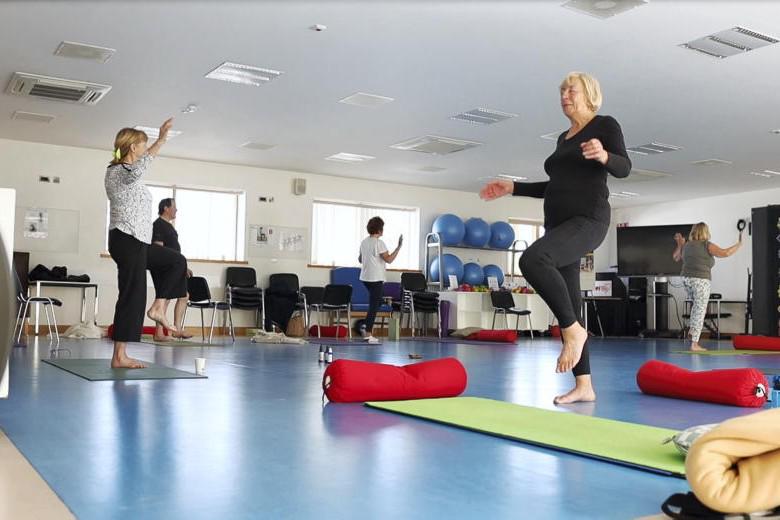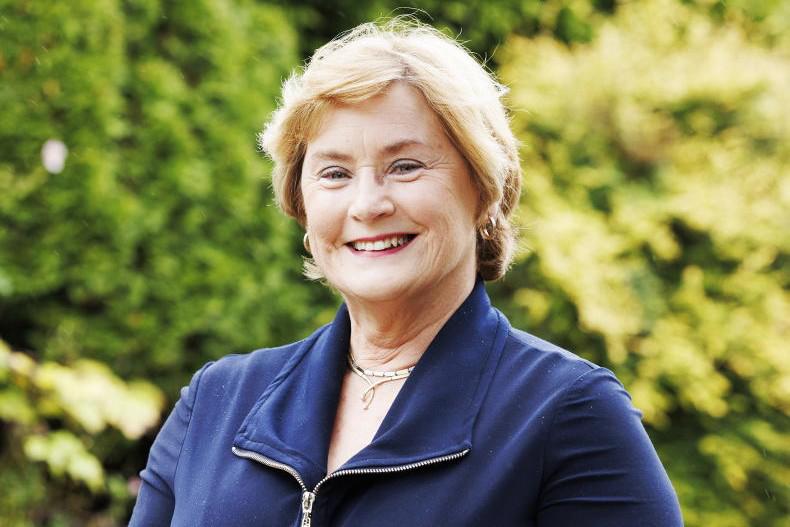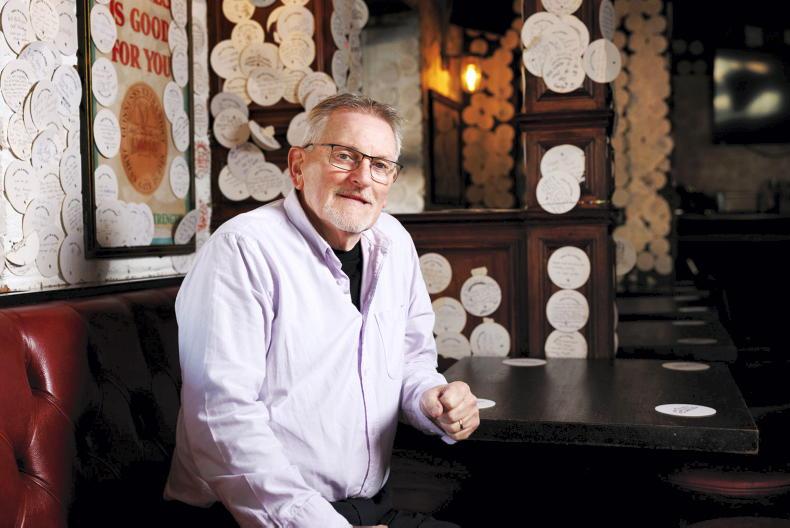Farmers are at high risk of cardiovascular disease (CVD) – heart attack, chest pain (angina) or stroke. That’s what this major study has discovered.
These results, published last week, show that farmers are three times more likely to have an acute cardiac event (stroke or heart attack) compared to those with fewer risk factors.
Eight hundred and sixty-eight male farmers underwent health checks in marts and Glanbia Ireland Agribusiness branches across the south, east and midlands in the study that involved Teagasc, the National Centre for Men’s Health (NCMH) at IT Carlow, the Irish Heart Foundation, Glanbia Ireland, the HSE and UCD College of Health and Agricultural Sciences.
While there are some positives like the majority of farmers reporting that they had visited their GP in the past year, fewer farmers smoking or drinking alcohol and getting more exercise than most, obesity is still a big issue.
The lead author of the study, Diana van Doorn, a PhD Walsh Scholar at Teagasc and the National Centre for Men’s Health at IT Carlow, said that the top-line figures paint a worrying picture, despite the positives.
Results show that of the majority of the 868 male farmers (85.9%) are either overweight or obese. This is substantially higher than the national average for Irish men (68%).
Four in five (80.5%) farmers were classified as having an “at risk” waist circumference of =94 cm (37 inches). Abdominal weight is a major risk factor for heart disease.
“There are areas of concern identified by the study,” she said.
In relation to eating habits, the lead author pointed out that:
72.1% of farmers reported consuming salty and/or sugary snacks on a daily basis. This is higher than the national average of 34% (not gender specific). One in five farmers (21.9%) reported consuming deep fried food three or more times a week9.3% reported not meeting the recommended daily intake of five or more portions of fruit and vegetables. This is higher than 70% of the national population of Irish males.Other findings from the study indicate that farmers go to see GPs in “fire brigade” fashion – in response to ill health – rather than to prevent risk factors for disease.
In the study, of those farmers not already prescribed medication for blood pressure 43.8% had high blood pressure, 62.6% had raised total cholesterol and 29.4% had elevated blood glucose.
This indicates either a lack of awareness, or an incomplete understanding of CVD, or the risks associated with it, say the study authors.
“We have seen already through the COVID-19 crisis that one out of every two patients presenting to intensive care units have serious heart conditions with more men than women becoming critically ill,” says Marese Damery, health check manager/health promotion at the Irish Heart Foundation.
“This research has shown that farmers have multiple heart and stroke risk factors and really highlights the importance of providing farmers and men in general with local access to health checks and intervention programmes. We hope that by continuing to work in collaboration, and leading the health checks, we can do this.”
Professor Gerry Boyle of Teagasc pointed out another significant aspect of the research.
“One of the striking results is that one in three farmers (34.9%) scored ‘poor’ or ‘below average’ on a self-administered short wellbeing measurement scale.”
He urged farmers to heed this report– and similar ones by Teagasc and its working partners in health – and use local health services when they need to.
The HSE also said that these study findings reinforce the need for “gender-sensitive, community outreach programmes that can successfully engage more ‘at risk’ groups of men”.
Dr John McNamara, Teagasc health and safety specialist, appealed to farmers to give cardiovascular disease prevention immediate attention. He said: “Don’t put off going to the doctor or taking the first steps to a healthier lifestyle. Do it today.”
The goal of the study is to provide farmers and men in general with local access to health checks and interventions programmes and to encourage them to take increased responsibility for their own health.
Commenting on the results of the study chief agribusiness growth officer at Glanbia Ireland Seán Molloy said: “Our business aims to make a difference in the communities in which we operate, so we were pleased to support this programme which has an important role to play in raising awareness of health and physical well-being issues amongst our farming community.”
Key preventative approaches are available from the HSE and the Irish Heart Foundation website.
Authors of the study: Diana van Doorn, Dr Noel Richardson, Dr David Meredith, Dr John McNamara, Dr Aoife Osborne, Dr Catherine Blake. June 2020.
The ‘Farmers Have Hearts’ Cardiovascular Health Programme (FHH-CHP) is a unique largescale (n=868) health behaviour change intervention tailored for Irish male farmers.
The research consisted of:
A baseline health check carried out by the Irish Heart FoundationA health behaviour change intervention (health coach by phone and/or M (Mobile)-health by text messages) and aRepeat health check at 52 weeks.The overall goal of the programme is to advance public health knowledge through original research that assesses the effectiveness of a health behaviour change programme among Irish farmers in terms of follow-up use of health services; sustainable health behaviour change; and reduced CVD risk.
The findings of the full programme will be published at a later date (2021).
This study responds to previous Irish research commissioned by the Irish Heart Foundation on the Farmers Have Hearts Programme which showed that farmers have multiple risk factors for heart disease and stroke. irishheart.ie/wp-content/uploads/2017/01/FHH_report_Summary_final_13th_May.pdf)
Previous Irish research showed that farmers in the age category 16-64 years had seven times higher mortality from heart diseases compared to salaried employees (Smyth et al., 2013 - https://academic.oup.com/eurpub/article/23/1/50/463950).
Teagasc has produced a report on coping with the pressures of farming and a leaflet on protecting mental health. See here:
www.teagasc.ie/media/website/publications/2018/Positive-Mental-Health-in-Farming.pdf
and
www.teagasc.ie/publications/2017/coping-with-the-pressures-of-farming.php
Has there been
an improvement?
Here’s what was said in Irish Country Living after the publication of the 2015 Farmers Have Hearts research:
“The recent Farmers Have Hearts report didn’t paint a pretty picture of farming men’s health. Eight out of 10 farmers given health checks at marts were advised to see their GPs. Raised blood pressure and cholesterol was a problem for nearly half of them and 86% were deemed overweight or obese.
Very little difference in five years – so is it time for farmers to really heed the message that came with those results? Have a regular check-up with your GP. It is 20 minutes that could save your life.
The theme of this year’s Men’s Health Week was “Restoring the balance” with everyone being asked to “be part of the solution”.
Director of operations for the Men’s Health Forum in Ireland Colin Fowler pointed out that coronavirus is having a disproportionate impact on men.
“Men seem to be faster at developing serious illness, recover slower from the virus and have a higher overall death rate,” he says.
He suggests that men take time to read the free Man Manual which can be downloaded at www.mhfi.org/challenges2020.pdf or see their Toolbox for Action.
There is information about heart health, mental fitness, cancer prevention and more there. The aims are to:
Heighten awareness of preventable health problems for males of all ages.Support men and boys to engage in healthier lifestyle choices/activities.Encourage the early detection and treatment of health difficulties in males. How do you get men to go to the doctor? One GP’s answer, as a consequence of seeing changing patterns in consultations during the COVID-19 crisis, is to bring the doctor to them via phone or video.
Dr Gavin Keane is a GP based in Donnybrook, Co Dublin and saw business at his practice tumble during the pandemic.
“No one was coming in. The vast majority of our work was suddenly being done over the phone and then via video,” he says.
With a keen interest in men’s health and aware of worrying statistics around this he decided to set up MensHealth.ie to offer online video consultations to men.
Men sometimes put on a brave face in front of their friends
“During the pandemic it struck me how much of our routine work can be done safely and well online. With, in my experience, men often being reluctant to come to the clinic in person I wanted to start an online GP service just for men.”
Many of the conditions that men die from are preventable conditions, he says, or are at least treatable at an early stage. In order for that to happen though, you have to go to the doctor.
“Men sometimes put on a brave face in front of their friends and families so they tolerate symptoms that could be illness indicators. They don’t visit their GP also because they may feel embarrassed about talking about their symptoms in person. I hope that the online nature of the service will offer enough ‘digital distance’ to encourage men to open up about their concerns,” he says.
Farmers are at high risk of cardiovascular disease (CVD) – heart attack, chest pain (angina) or stroke. That’s what this major study has discovered.
These results, published last week, show that farmers are three times more likely to have an acute cardiac event (stroke or heart attack) compared to those with fewer risk factors.
Eight hundred and sixty-eight male farmers underwent health checks in marts and Glanbia Ireland Agribusiness branches across the south, east and midlands in the study that involved Teagasc, the National Centre for Men’s Health (NCMH) at IT Carlow, the Irish Heart Foundation, Glanbia Ireland, the HSE and UCD College of Health and Agricultural Sciences.
While there are some positives like the majority of farmers reporting that they had visited their GP in the past year, fewer farmers smoking or drinking alcohol and getting more exercise than most, obesity is still a big issue.
The lead author of the study, Diana van Doorn, a PhD Walsh Scholar at Teagasc and the National Centre for Men’s Health at IT Carlow, said that the top-line figures paint a worrying picture, despite the positives.
Results show that of the majority of the 868 male farmers (85.9%) are either overweight or obese. This is substantially higher than the national average for Irish men (68%).
Four in five (80.5%) farmers were classified as having an “at risk” waist circumference of =94 cm (37 inches). Abdominal weight is a major risk factor for heart disease.
“There are areas of concern identified by the study,” she said.
In relation to eating habits, the lead author pointed out that:
72.1% of farmers reported consuming salty and/or sugary snacks on a daily basis. This is higher than the national average of 34% (not gender specific). One in five farmers (21.9%) reported consuming deep fried food three or more times a week9.3% reported not meeting the recommended daily intake of five or more portions of fruit and vegetables. This is higher than 70% of the national population of Irish males.Other findings from the study indicate that farmers go to see GPs in “fire brigade” fashion – in response to ill health – rather than to prevent risk factors for disease.
In the study, of those farmers not already prescribed medication for blood pressure 43.8% had high blood pressure, 62.6% had raised total cholesterol and 29.4% had elevated blood glucose.
This indicates either a lack of awareness, or an incomplete understanding of CVD, or the risks associated with it, say the study authors.
“We have seen already through the COVID-19 crisis that one out of every two patients presenting to intensive care units have serious heart conditions with more men than women becoming critically ill,” says Marese Damery, health check manager/health promotion at the Irish Heart Foundation.
“This research has shown that farmers have multiple heart and stroke risk factors and really highlights the importance of providing farmers and men in general with local access to health checks and intervention programmes. We hope that by continuing to work in collaboration, and leading the health checks, we can do this.”
Professor Gerry Boyle of Teagasc pointed out another significant aspect of the research.
“One of the striking results is that one in three farmers (34.9%) scored ‘poor’ or ‘below average’ on a self-administered short wellbeing measurement scale.”
He urged farmers to heed this report– and similar ones by Teagasc and its working partners in health – and use local health services when they need to.
The HSE also said that these study findings reinforce the need for “gender-sensitive, community outreach programmes that can successfully engage more ‘at risk’ groups of men”.
Dr John McNamara, Teagasc health and safety specialist, appealed to farmers to give cardiovascular disease prevention immediate attention. He said: “Don’t put off going to the doctor or taking the first steps to a healthier lifestyle. Do it today.”
The goal of the study is to provide farmers and men in general with local access to health checks and interventions programmes and to encourage them to take increased responsibility for their own health.
Commenting on the results of the study chief agribusiness growth officer at Glanbia Ireland Seán Molloy said: “Our business aims to make a difference in the communities in which we operate, so we were pleased to support this programme which has an important role to play in raising awareness of health and physical well-being issues amongst our farming community.”
Key preventative approaches are available from the HSE and the Irish Heart Foundation website.
Authors of the study: Diana van Doorn, Dr Noel Richardson, Dr David Meredith, Dr John McNamara, Dr Aoife Osborne, Dr Catherine Blake. June 2020.
The ‘Farmers Have Hearts’ Cardiovascular Health Programme (FHH-CHP) is a unique largescale (n=868) health behaviour change intervention tailored for Irish male farmers.
The research consisted of:
A baseline health check carried out by the Irish Heart FoundationA health behaviour change intervention (health coach by phone and/or M (Mobile)-health by text messages) and aRepeat health check at 52 weeks.The overall goal of the programme is to advance public health knowledge through original research that assesses the effectiveness of a health behaviour change programme among Irish farmers in terms of follow-up use of health services; sustainable health behaviour change; and reduced CVD risk.
The findings of the full programme will be published at a later date (2021).
This study responds to previous Irish research commissioned by the Irish Heart Foundation on the Farmers Have Hearts Programme which showed that farmers have multiple risk factors for heart disease and stroke. irishheart.ie/wp-content/uploads/2017/01/FHH_report_Summary_final_13th_May.pdf)
Previous Irish research showed that farmers in the age category 16-64 years had seven times higher mortality from heart diseases compared to salaried employees (Smyth et al., 2013 - https://academic.oup.com/eurpub/article/23/1/50/463950).
Teagasc has produced a report on coping with the pressures of farming and a leaflet on protecting mental health. See here:
www.teagasc.ie/media/website/publications/2018/Positive-Mental-Health-in-Farming.pdf
and
www.teagasc.ie/publications/2017/coping-with-the-pressures-of-farming.php
Has there been
an improvement?
Here’s what was said in Irish Country Living after the publication of the 2015 Farmers Have Hearts research:
“The recent Farmers Have Hearts report didn’t paint a pretty picture of farming men’s health. Eight out of 10 farmers given health checks at marts were advised to see their GPs. Raised blood pressure and cholesterol was a problem for nearly half of them and 86% were deemed overweight or obese.
Very little difference in five years – so is it time for farmers to really heed the message that came with those results? Have a regular check-up with your GP. It is 20 minutes that could save your life.
The theme of this year’s Men’s Health Week was “Restoring the balance” with everyone being asked to “be part of the solution”.
Director of operations for the Men’s Health Forum in Ireland Colin Fowler pointed out that coronavirus is having a disproportionate impact on men.
“Men seem to be faster at developing serious illness, recover slower from the virus and have a higher overall death rate,” he says.
He suggests that men take time to read the free Man Manual which can be downloaded at www.mhfi.org/challenges2020.pdf or see their Toolbox for Action.
There is information about heart health, mental fitness, cancer prevention and more there. The aims are to:
Heighten awareness of preventable health problems for males of all ages.Support men and boys to engage in healthier lifestyle choices/activities.Encourage the early detection and treatment of health difficulties in males. How do you get men to go to the doctor? One GP’s answer, as a consequence of seeing changing patterns in consultations during the COVID-19 crisis, is to bring the doctor to them via phone or video.
Dr Gavin Keane is a GP based in Donnybrook, Co Dublin and saw business at his practice tumble during the pandemic.
“No one was coming in. The vast majority of our work was suddenly being done over the phone and then via video,” he says.
With a keen interest in men’s health and aware of worrying statistics around this he decided to set up MensHealth.ie to offer online video consultations to men.
Men sometimes put on a brave face in front of their friends
“During the pandemic it struck me how much of our routine work can be done safely and well online. With, in my experience, men often being reluctant to come to the clinic in person I wanted to start an online GP service just for men.”
Many of the conditions that men die from are preventable conditions, he says, or are at least treatable at an early stage. In order for that to happen though, you have to go to the doctor.
“Men sometimes put on a brave face in front of their friends and families so they tolerate symptoms that could be illness indicators. They don’t visit their GP also because they may feel embarrassed about talking about their symptoms in person. I hope that the online nature of the service will offer enough ‘digital distance’ to encourage men to open up about their concerns,” he says.









SHARING OPTIONS